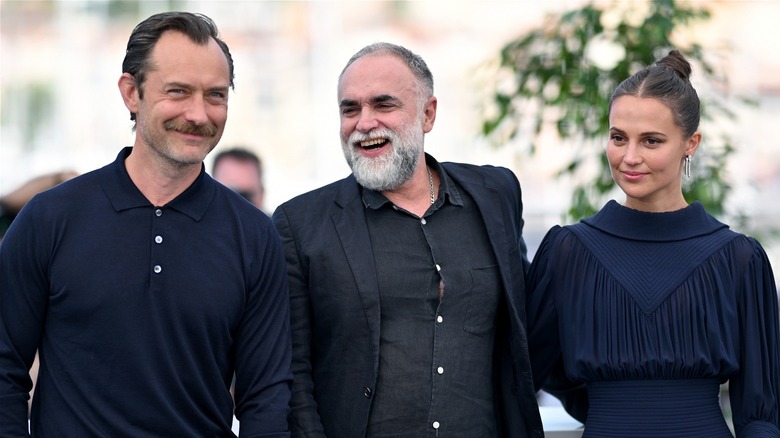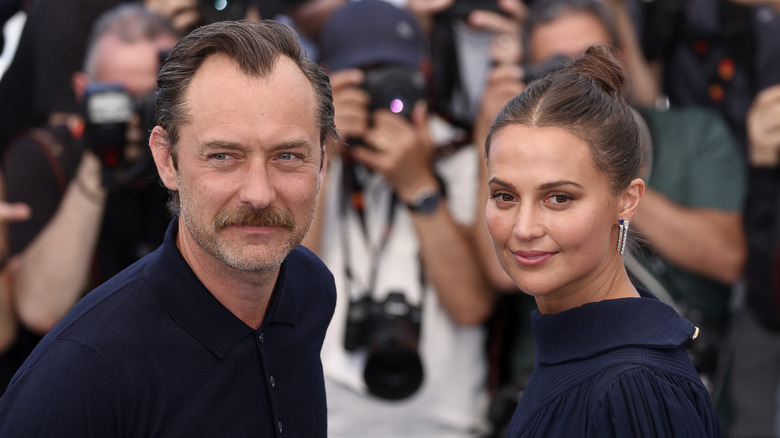Firebrand: Why Jude Law Couldn't Consider Henry VIII As A Monster
As the infamous king who gained notoriety for executing his wives, Henry VIII has been covered by almost every possible angle. From the sex-riddled Showtime series "The Tudors" to the divisive royal family movie, "The Other Boleyn Girl," audiences are familiar with the king's futile attempts to sire a living male heir. But while most of these pop culture touchstones feature Anne Boleyn as a focal point, "Firebrand" is different. "Ex Machina" actor Alicia Vikander stars as Catherine Parr, Henry's sixth wife — and the only one to survive him. The man, in question, is also a departure from previous depictions. As opposed to the young and virile portrayal from Jonathan Rhys Meyers, Jude Law plays Henry in his last stages of life. The king was famously bloated with gout, which only inflamed his paranoia. But as despicable as he was in the history books, Law took a different approach to the ruler.
"[Karim Aïnouz] made it clear he wanted to look at this from a human perspective, so I felt free of the restrictions of history," Law explained during the film's panel at Cannes. With this freedom, the actor could view Henry as a person instead of a one-dimensional villain. "If I'm honest," Law continued, "I couldn't consider him a monster. I had to understand him. We always wanted to make sure he was rounded and plausible and contradictory, but fully considered, rather than monstrous. And indeed, he is monstrous. But that wasn't my job to judge him as such."
Firebrand was lower stakes behind the scenes
Henry VIII's reputation for mental instability and killing his wives wouldn't have been lost on Catherine Parr. As the sixth in a long line of women who had been mistreated by the patriarchy, it would have been in her best interest to outlast her husband. Because of the religious fanaticism that colored Henry's reign, Catherine had to be careful how she acted, or she could also lose her head. But this constant source of anxiety was only apparent in front of the camera. Behind the scenes, there were no outbursts of rage or suffering for art. Despite Henry's reputation, Jude Law assured the Cannes panel that filming was quite the opposite of what you would expect.
"My memory is that we laughed a lot," Law recalled. "Which sounds really twisted because, of course, we did awful things to each other. But my memory is we were laughing a lot." The actor commended director Karim Aïnouz for influencing a supportive set with an accommodating atmosphere. Law and Alicia Vikander could be scene partners in every sense of the word, instead of their onscreen counterparts.
Henry will continue to be remembered as a tyrant who disregarded his wives and tore the country apart to do it. He created his own church, cultivating a religious conflict between Protestants and Catholics. But instead of a microcosm of true events, "Firebrand" had a legion of support behind it.

